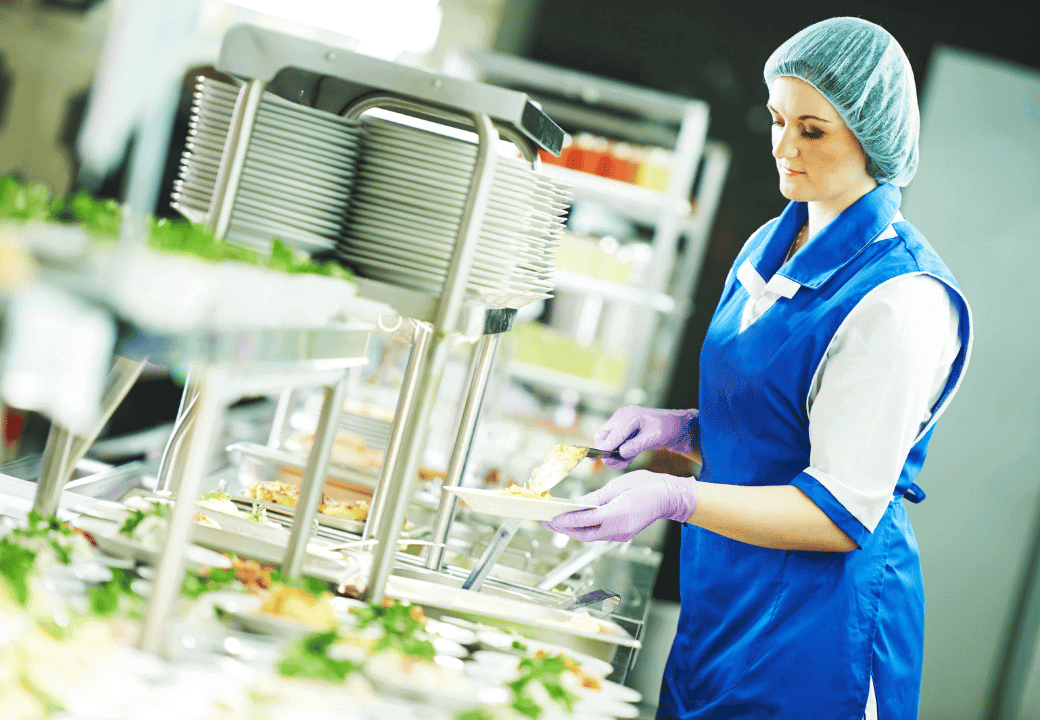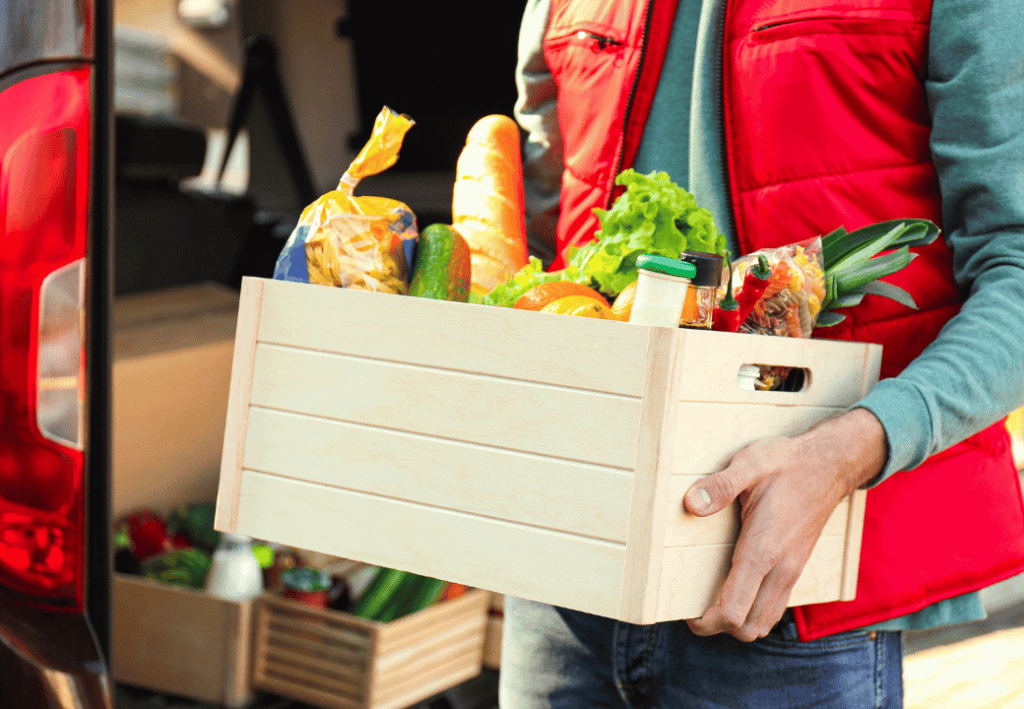Refrigerated transport of food products is a rapidly growing industry, but it faces numerous logistical and regulatory challenges. This activity of transporting perishable goods under controlled temperatures is particularly complex, with strict requirements for maintaining the cold chain, traceability, and food safety. Deliveries in dense urban areas and new environmental regulations further complicate operations.
In this article, we will discuss the key role of refrigerated transport of fresh products in society and its main players in France. We will also examine the various challenges and constraints associated with this activity that make operations very complex.
The market for refrigerated transport of food products
Key figures about the industry
Refrigerated transport is a growing industry, with an average annual growth of 4% since 2014. In 2019, the revenue from this activity amounted to €6.4 billion, with 91% generated in the food sector. According to forecasts from “Les Échos Études,” the market for temperature-controlled transport of food products is expected to experience annual growth of 1.2% between 2017 and 2021, and over 20% growth by 2027.
The food wholesale sector, a key player in the refrigerated logistics chain, represents a turnover of €120 billion, with 19,000 companies and 140,000 employees. Although revenue increased by 7.5% compared to 2022 in the last quarter of 2023, due to inflation, volumes have decreased. Furthermore, according to the CGF wholesale trade barometer of January 2024, wholesalers in agricultural and food products anticipate a challenging start to 2024, despite the beginning of disinflation.
A key player in urban logistics
Food wholesalers play a crucial role in urban logistics, contributing to the attractiveness of city centers and local shops. According to estimates, wholesalers account for about 20% of deliveries in urban areas.
Cold chain logistics for food serves a wide variety of sectors within urban logistics: cafes-hotels-restaurants, collective catering, public institutions (hospitals, schools, prisons, administrations), large retailers, local shops, and more.

Food wholesalers play a key role as intermediaries between manufacturers/producers and various professional clients. Their main functions include sourcing, selecting, and purchasing products, advising their clients, and massifying flows both upstream and downstream of the supply chain. They are responsible for delivery to the final client, ensuring the cold chain and food safety standards are maintained. Additionally, they manage reverse logistics by handling returns of unsold goods, deposits, and packaging. This logistical intermediation enables them to optimize costs and service quality for all links in the supply chain.
Refrigerated food transport players
Refrigerated food transport involves a multitude of players, from specialists dedicated to this activity to large traditional transport groups that have diversified into this promising market.
Specialized players in refrigerated food logistics
Among the key players in refrigerated food logistics, some are wholesalers-distributors with their own fleets of refrigerated trucks to supply their retail networks. Others are dedicated logistics providers delivering fresh and frozen products to professionals in the catering, hospitality, and retail sectors.
In the European market, for example, we can mention:
- Groupe Pomona: A major player in refrigerated transport in France, specializing in the distribution of fresh and frozen products. With a network of 40 platforms across the country, the group ensures daily deliveries to supermarkets and hypermarkets.
- Sysco: An American giant in food distribution, present in many European countries. In France, the company has a fleet of refrigerated trucks to supply restaurants, hotels, and other food service establishments.
- Metro: A German wholesale distribution group specializing in supplying professionals in the catering and hospitality industries. With refrigerated warehouses and a fleet of refrigerated trucks, Metro delivers fresh products across Europe.
- Transgourmet: A subsidiary of the Swiss Coop group, specializing in the distribution of fresh and frozen food products to catering professionals. The company has a vast logistics network with refrigerated warehouses and a fleet of refrigerated trucks.
- Major supermarket chains like Carrefour, Groupe Casino, Franprix, Auchan, E. Leclerc, Système U, and Lidl ensure the supply of fresh and frozen products to their stores.
- Other specialized actors such as Pro à Pro, Distriboissons, France Frais, Martin Brower, Vivalya, France Boissons, and Creno also operate in refrigerated transport, primarily serving professionals in the catering and hospitality sectors.
Additionally, numerous smaller players, often family-run businesses, handle the refrigerated transport of food products, particularly those transiting through the Rungis wholesale market.
Traditional carriers
Facing the growth of the refrigerated transport market, many traditional carriers have positioned themselves in this promising segment, for example:
- Groupe Mousset, a historic player in road transport, strengthened its presence in refrigerated transport by acquiring Jetfreeze in 2018, specializing in frozen products, and Salesky in 2022, an expert in fresh product delivery.
- STEF, the European leader in temperature-controlled transport, continues its expansion with the acquisition of TransWest in Belgium in 2023 and Bakker Logistiek in the Netherlands in 2024, thus reinforcing its European network.
- Chronopost, a subsidiary of La Poste specializing in express delivery, invested 22 million euros in 2023 to create 4 new Chronopost Healthcare & Chronofresh hubs. The objective is to double the volumes of this activity within 5 years, meeting the growing demand for fresh and pharmaceutical product delivery.
These investments demonstrate the strategic interest of major transport groups in the refrigerated sector, which represents a promising growth area despite challenges related to inflation and volume fluctuations.
Constraints and challenges of fresh product transport
A highly constrained activity
Transporting fresh products is an especially demanding activity, subject to numerous constraints. Firstly, the challenging and fluctuating economic context presents a significant hurdle. Decreased volumes due to sluggish household consumption and increased operational costs (fuel, labor, etc.) directly impact profit margins. Transporters must continuously adapt and optimize their processes to remain competitive.
Secondly, cold chain logistics are inherently complex. Dense urban centers, with issues such as congestion and parking difficulties, complicate delivery operations. Strict schedules, particularly for store deliveries, require great responsiveness. The just-in-time flow of perishable products, with short shelf lives, demands rigorous stock management and rotations. Traceability is crucial at every stage to ensure food safety. Additionally, managing return flows (unsold goods, returnable packaging) adds an extra layer of complexity.
Lastly, customer demand is increasingly volatile and demanding. The proliferation of delivery channels (stores, drive-thrus, e-commerce) and the development of new services (home delivery, click & collect) force transporters to constantly adapt. Competition is fierce, and customers readily switch providers if they are dissatisfied.
Increasing CSR constraints
Beyond operational challenges, refrigerated transport players also face increasingly stringent environmental and social constraints, driven by regulations and societal expectations.
The emergence of Low Emission Zones (LEZs), which restrict access for the most polluting vehicles in city centers, presents a major challenge. With over 320 LEZs in Europe, including 12 in France and 30 more planned by 2025, carriers must renew their fleets to avoid fines for non-compliance with emission standards. This requires significant investments in cleaner vehicles (electric, CNG, etc.).
Moreover, fleet electrification has become a necessity, with the European Union imposing CO2 reduction targets for heavy goods vehicles (-15% by 2025 and -30% by 2030) and light commercial vehicles (-15% by 2025 and -37.5% by 2030). This transition to alternative powertrains represents a significant technological and financial challenge for carriers. However, it also meets the growing consumer demand for cleaner and more environmentally friendly deliveries.
Finally, social measures such as the French government’s digital platform Mobilic, which requires employers to record the working hours of their employees in light road transport, add an additional layer of complexity for industry players. This regulation aims to combat abuses related to working hours and remuneration but imposes administrative burdens and additional costs on companies.
Challenges in cold chain logistics
Food wholesalers, key players in the cold chain logistics, face several specific challenges related to their wholesale distribution activities.
First, they must consolidate supplies upstream from producers and manufacturers to benefit from economies of scale and optimize logistical costs. This requires rigorous stock and flow management, as well as investments in large-capacity refrigerated warehouses.
Next, wholesalers must merge downstream flows to their customers (retailers, restaurateurs, etc.), particularly through cross-docking for perishable goods. This technique helps reduce storage time and handling, while optimizing delivery routes.
Another major challenge is optimizing delivery to the end customer, with constraints on deadlines, time slots, delivery zones, etc. Wholesalers must constantly improve their logistical processes to ensure quality service to their customers.
Additionally, they must manage the reverse logistics of unsold goods, returnable packaging, etc. This reverse logistics is complex and costly, but essential for limiting food waste and complying with regulations.
Finally, maintaining the cold chain and ensuring traceability of products at all stages are imperative to guarantee food safety and the quality of fresh products. This requires investments in high-performance refrigeration equipment, rigorous team training, and robust tracking and control systems.
These logistical challenges are central to the activities of food wholesalers and determine their ability to efficiently supply retail businesses and the foodservice industry, while meeting regulatory requirements and consumer expectations.
The refrigerated transport of food products is a key sector of the economy, facing numerous logistical and regulatory challenges despite its sustained growth. The strict requirements of the cold chain, the complexity of urban logistics, and new environmental and social regulations compel players to constantly optimize their operations. To remain competitive in this highly contested market, they must meet high consumer expectations for quality, traceability, and sustainability while controlling costs. Innovative software providers like Hub One and Kardinal can help them optimize their logistics processes and transport management.
Discover our next article on technological solutions for optimizing fresh product transport.
